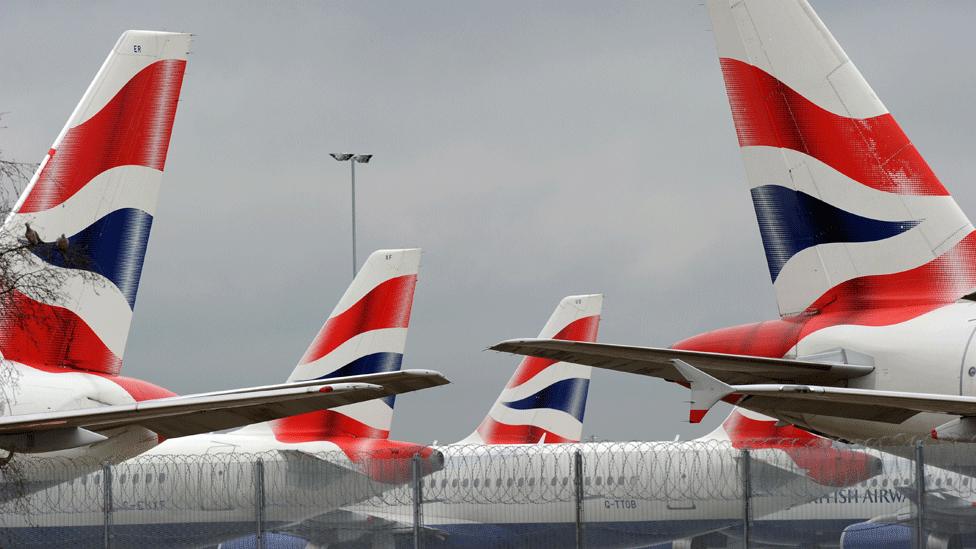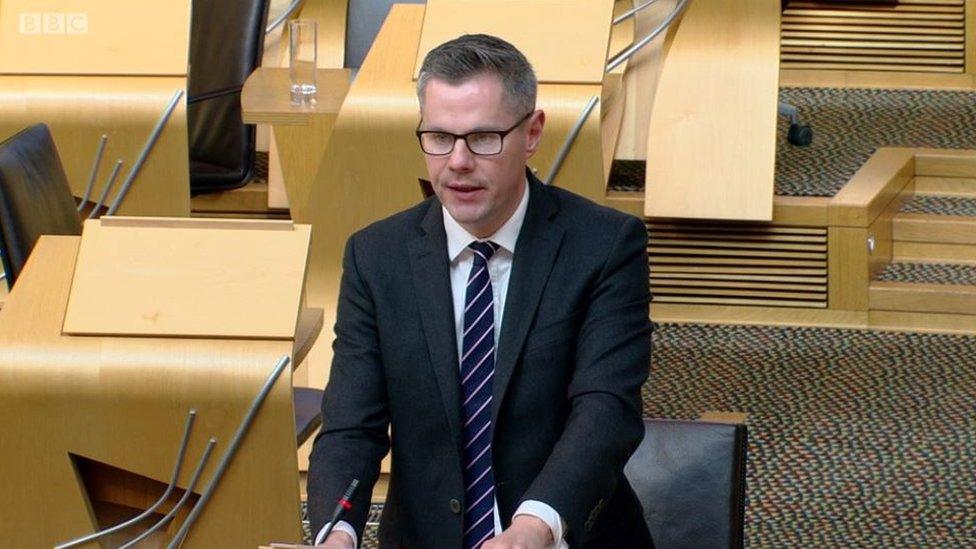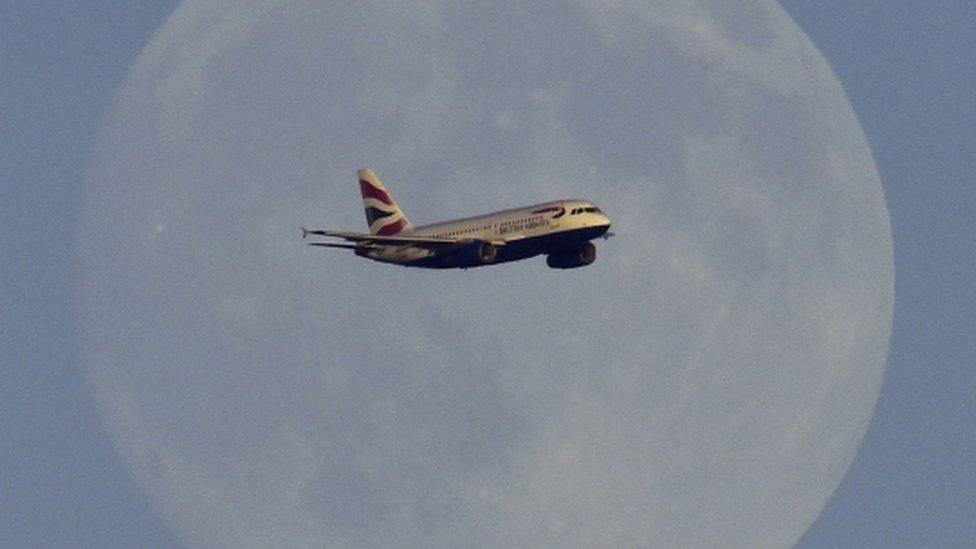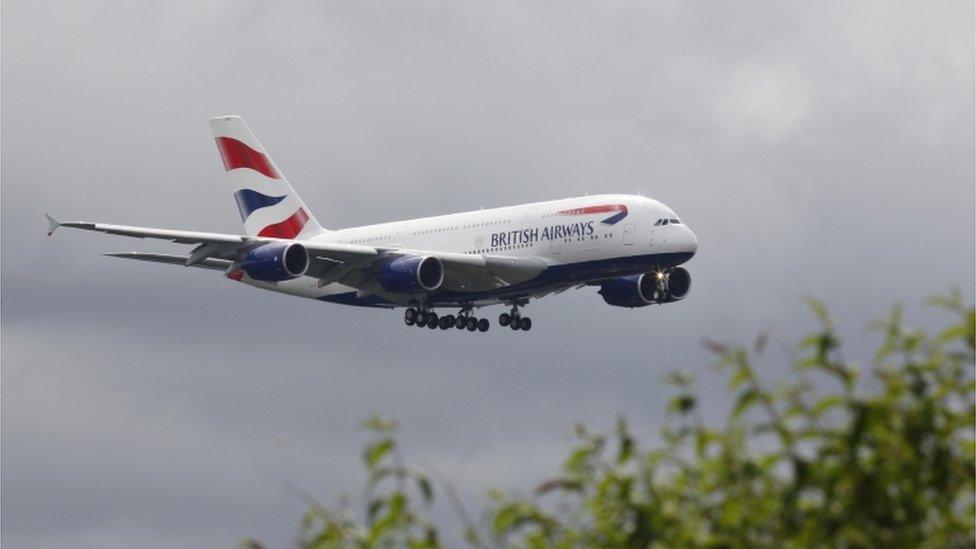Scottish aviation tax bill passes first Holyrood vote
- Published

The Scottish government wants to halve air passenger duty before ultimately scrapping it altogether
Plans for a devolved aviation tax have passed the first legislative hurdle after a vote at Holyrood.
The Air Departure Tax (Scotland) Bill is designed to replace air passenger duty with a devolved Scottish levy.
Ministers want to cut the tax by 50% before eventually abolishing it "when finances allow".
MSPs backed the general principles of the bill in the first stage of the legislative process, but many asked for more details on the plans.
The legislation passed the stage one vote by a margin of 112 votes to four, with six members abstaining.
The bill will now progress to the committee stage, before a further debate and vote in the chamber later in the year.
The finance committee had backed the general principles of the bill, but said it was "essential" that more information was provided.
MSPs called on Finance Secretary Derek Mackay to commission an independent economic analysis of the proposed 50% cut, to be published before or at the same time as consultations begin on rates and bands.
Mr Mackay, who argues that the tax is "a barrier to Scotland's ability to secure new direct international services and maintain existing ones", wrote back to the committee, external saying this review would be carried out.

Finance Secretary Derek Mackay urged MSPs to back the plans
The bill is "enabling" legislation, external, which sets out how new devolved powers would be used but does not go into detail about rates and bands.
A number of groups have voiced concern about this in sessions of the finance committee, including the Chartered Institute of Taxation, who said detail on rates should be included in the legislation.
And finance committee convener Bruce Crawford, an SNP MSP, said the group was "disappointed by the government's lack of information on exemptions to the tax, and on the economic, social, financial and environmental impacts" of cutting the levy.
Mr Mackay told MSPs that he was listening to recommendations from the committee, saying he agreed that evidence was required and that the tax should be monitored over time.
He said he would come back to discuss rates and bands in due course, saying a "consultative and collaborative" approach would be taken, but urged members to back the general principles of the bill and the devolution of the tax in the first place.

The Scottish government has been urged to bring forward more information about its plans
The Scottish Conservatives have backed the abolition of duties on long-haul flights, which finance spokesman Murdo Fraser said would encourage more direct long-haul flights from Scotland, cutting connecting flights and thus the country's carbon footprint.
He said it made sense to have the legislation in place, given it simply creates a mechanism for the implementation of the devolved tax.
Scottish Labour also agreed that power over tax should be devolved, and thus backed the bill - but spoke out against the planned cut. Transport spokesman Neil Bibby said cutting the duty would provide "a huge tax break to airlines who simply don't need it".
The Scottish Greens oppose cutting aviation tax, but decided to abstain in the stage one vote.
Co-convener Patrick Harvie said the bill was "bereft of meaning, intent and purpose", but said it could be fixed later in the legislative process.
Meanwhile, the Scottish Lib Dems opposed the legislation, with Mike Rumbles calling it a "terrible bill" which "deserves to be thrown out".
The stage one debate will be followed by the first vote on the legislation. If it passes this, there is a fresh phase of committee scrutiny and possible amendments, before the stage three vote and final vote in the chamber.
If the legislation is passed by parliament, the first rates and bands for the tax are likely to be considered by MSPs after the summer recess.
- Published1 April 2017

- Published1 March 2017

- Published13 February 2017
